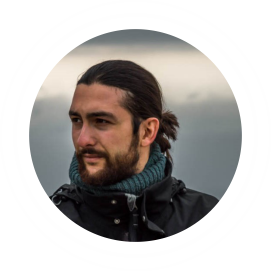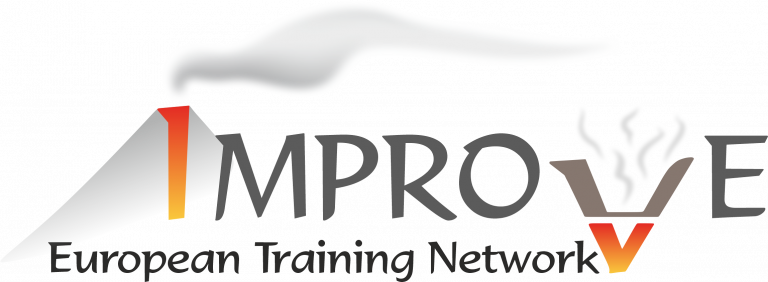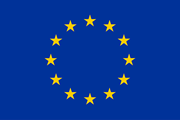Roberto Davoli

Roberto Davoli
Nationality: Italian
Institution: LMU München
Country: Germany
Research Title: Evolution of permeability in Krafla’s geothermal field and associated seismo-acoustic patterns
PROJECT SUMMARY
This project focuses on the Krafla volcanic system in Iceland and it consists in mainly laboratory-based experiments to shed light on the evolution of permeable structures with respect to ongoing alteration in Krafla’s hot geothermal field as well as geophysical signals associated with this evolution. The physico-chemical and textural characterization of rocks comprising Krafla’s shallow subsurface structure is a fundamental part of this project and that is why we will conduct this on samples from field surveys as well as drill cuttings. Samples with varying overall permeability will then be analysed for their seismo-acoustic (AE) pattern once subjected to volatile flux in order to understand subsurface volatile movement, its associated geophysical signals and its evolution in time.
Scientific Background
I have graduated with a BSc in Geological Sciences at Sapienza University of Rome in 2017. In 2018 I moved to Granada, Spain, where I obtained two MSc titles from the University of Granada, the first one in Geophysics and Meteorology (specialization in Geophysics) and the second in Geology Applied to Mineral and Energy Resources (specialization in Energy Resources). My two Master’s theses were of seismological nature. In the first thesis I located events occurred during 2018 and the beginning of 2019 in the Bransfield Strait, which is located in the Antarctic Ocean and it’s dominated by seismic and volcanic activity, while during the second thesis I expanded the list of located earthquakes and I started studying the seismic anisotropy in the upper crust by examining the shear-wave splitting phenomenon.
To enrich my knowledge on the subject, I did a two-month-long Erasmus+ Traineeship at the National and Kapodistrian University. During my traineeship I had the opportunity to learn how to use specific scientific software of shear-wave splitting analysis and to participate in field work for the installation of seismic stations.
Activity Record
Training Events Attended
| Data (from) | Data (to) | Type | Title | Venue |
|---|---|---|---|---|
| 5/14/2023 | 5/20/2023 | School | Geophysical data inversion and numerical forward modelling | Carlingford, Ireland |
| 7/24/2023 | 7/28/2023 | School | Multiparametric Volcano Monitoring: Data Processing, Analysis and Modelling | Nicolosi (Mount Etna), Italy |
| 4/8/2024 | 4/10/2024 | Specialized Short Course | Petrophysical Properties - From the Laboratory to the Field and Modelling | Munich, Germany |
| 5/28/2024 | 5/31/2024 | School | Multi- Facet Science: Data, Models, Infrastructures, Industry and Communication | Potsdam, Germany |
| 7/23/2023 | 8/2/2023 | Multiparametric Experiment | Etna Multiparametric Experiment | Mount Etna, Italy |
Other Activities
| Data (from) | Data (to) | Type | Venue | Title | Description |
|---|---|---|---|---|---|
| 2/4/2023 | 2/11/2023 | Field campaign | Rotokawa, New Zealand | Field campaign in the Rotokawa geothermal area | Subsoil in situ petrophysical characterization and degassing measurements |
| 2/28/2023 | 4/14/2023 | Secondment | Rome, Italy | Secondment at INGV Rome | Secondment at INGV Rome to carry out research activities in the field of geochemistry, modeling of geothermal fields and volcano monitoring |
| 5/21/2023 | 6/21/2023 | Secondment | Reykjavík & Krafla, Iceland | Secondment in Reykjavík and Krafla | Secondment in Reykjavík and Krafla in order to study the lithologies found in depth in the broader Krafla area and to collect samples for laboratory analyses |
| 6/10/2023 | 6/16/2023 | Field campaign | Krafla, Iceland | Field campaign in Krafla, Iceland | In situ petrophysical characterization of the different lithologies and sampling for further laboratory analyses |
| 3/17/2024 | 4/1/2024 | Secondment | INGV Bologna | Secondment at INGV Bologna | Building an experimental setup for CO2 degassing through subsoil layers |
| 5/19/2024 | 5/26/2024 | Secondment | Bologna & Perugia, Italy | Secondment to INGV Bologna to perform experiments at the University of Perugia | Secondment to INGV Bologna to perform CO2 degassing experiments at the University of Perugia |



